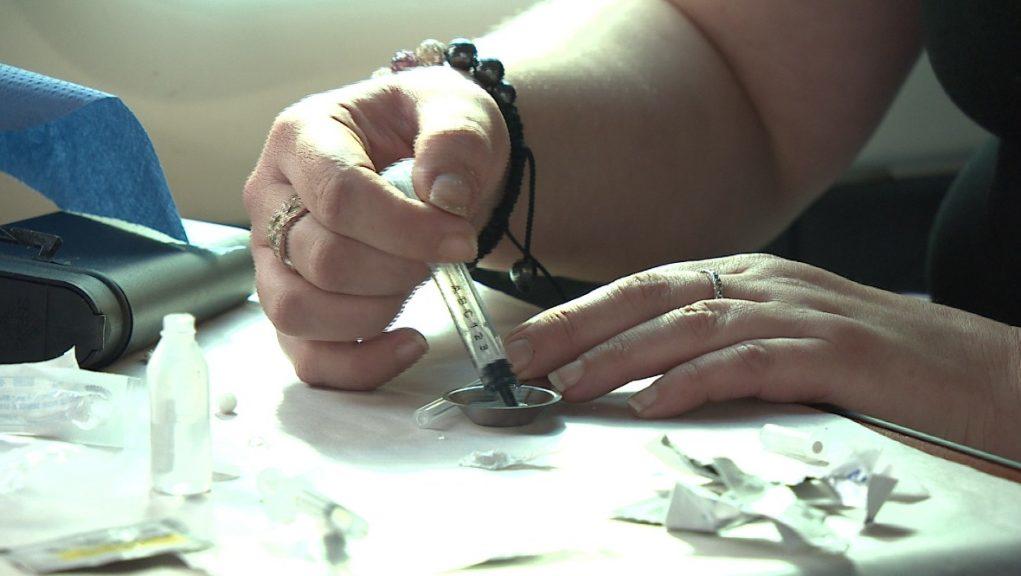Safer drug consumption facilities (SDCF) and drug checking could be key to addressing drug harms in the city of Edinburgh, according to substance use experts at the University of Stirling.
The study commissioned by the City of Edinburgh Council and the Edinburgh Alcohol and Drugs Partnership in the wake of concerns over drug-related deaths in the city recommends that SDCFs be set up in a number of locations, and that facilities and staff are equipped to address significant changes in patterns of drug use in Edinburgh.
Changing patterns of drug use in the city include: concerning numbers of people injecting cocaine; use of multiple drugs at the same time; and high levels of harm from the use of benzodiazepines, a class of depressant drugs usually prescribed for anxiety and insomnia.
Edinburgh’s “complex and variable” patterns of drug consumption mean SDCFs would need to do more than accommodate people injecting heroin, say researchers.
Interviewees for the study – which included 22 people with living experience of injecting drug use, as well as families and professionals working in health, housing, treatment and other services – were strongly supportive of SDCF provision as part of a wider harm reduction and treatment response.
They viewed SDCFs as non-judgemental spaces which could help signpost people towards services and treatment.
More than 200 SDCFs operate globally in at least 12 countries. NHS Greater Glasgow and Clyde plans to open an SDCF in Glasgow this year.
Evidence shows they can reduce overdose risks, support safer injecting practices and provide harm reduction advice for people attending the facilities.
City of Edinburgh Councillors will meet in March to discuss the SDCF study, which was carried out by the University of Stirling, Glasgow Caledonian University, University of Glasgow and Figure 8 Consultancy.
Dr James Nicholls, senior lecturer in public health at the University of Stirling, said: “While safer drug consumption facilities are not a silver bullet, our study indicates they could provide vital support for marginalised and vulnerable groups in Edinburgh and play an important role in addressing the high levels of drug harms in the city.”
Also up for discussion in March is a feasibility study on drug checking services (DCS) in Edinburgh.
Commissioned in parallel with the SDCF report and also carried out by the University of Stirling, it found a need and demand for flexible, accessible and user-friendly drug checking facilities.
The University of Stirling recently published its findings from a wider report into drug checking services in Scotland.
Funded by the Scottish Drugs Death Taskforce, it found that demand was high for a range of different DCS across the three proposed pilot areas – Aberdeen, Dundee and Glasgow.
All three cities are working towards applying for Home Office licences which are required to run these services.
Dr Hannah Carver, senior lecturer in substance use at the University of Stirling, said: “The results of both these studies into DCS show that drug checking services in Scotland need to be adaptable to local needs. There clearly is not a one-size-fits-all solution.”
A spokesperson for the Edinburgh Health and Social Care Partnership (EHSCP) said “ The Partnership has commissioned a feasibility study into safe drug consumption rooms which has reported and is currently being considered by Edinburgh Alcohol and Drugs Partnership and the Edinburgh Health and Social Care Partnership. We are committed to rigorously examining the findings of this paper. Any future action on drug consumption rooms will be dependent on legal clarification by the Scottish Government, the position of the Lord Advocate and funding availability.
“The EHSCP and other members of the alcohol and drugs partnership are working hard to minimise drug deaths by improving access to treatment, harm reduction and recovery opportunities.”
Follow STV News on WhatsApp
Scan the QR code on your mobile device for all the latest news from around the country


 STV News
STV News

























